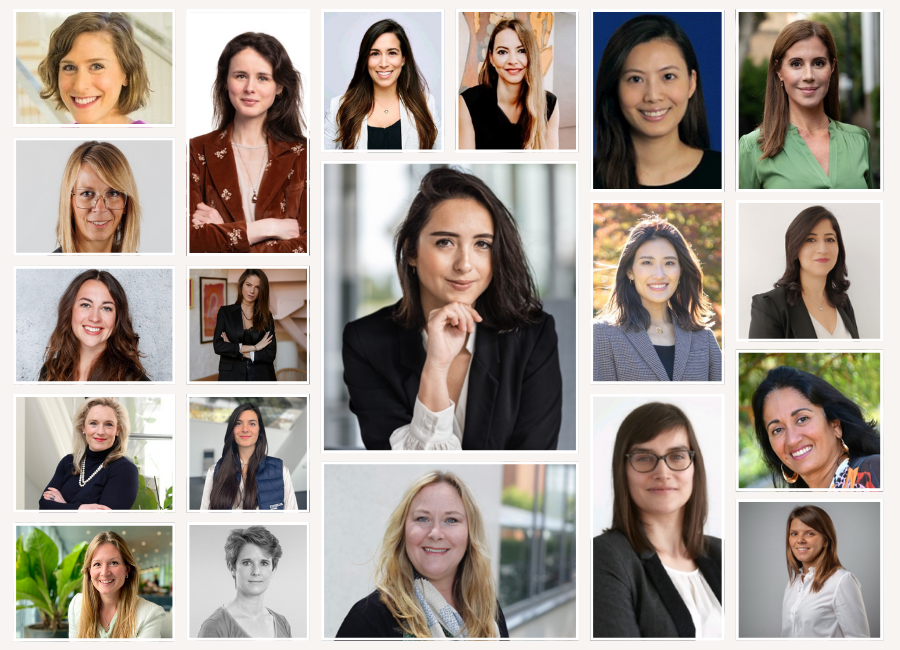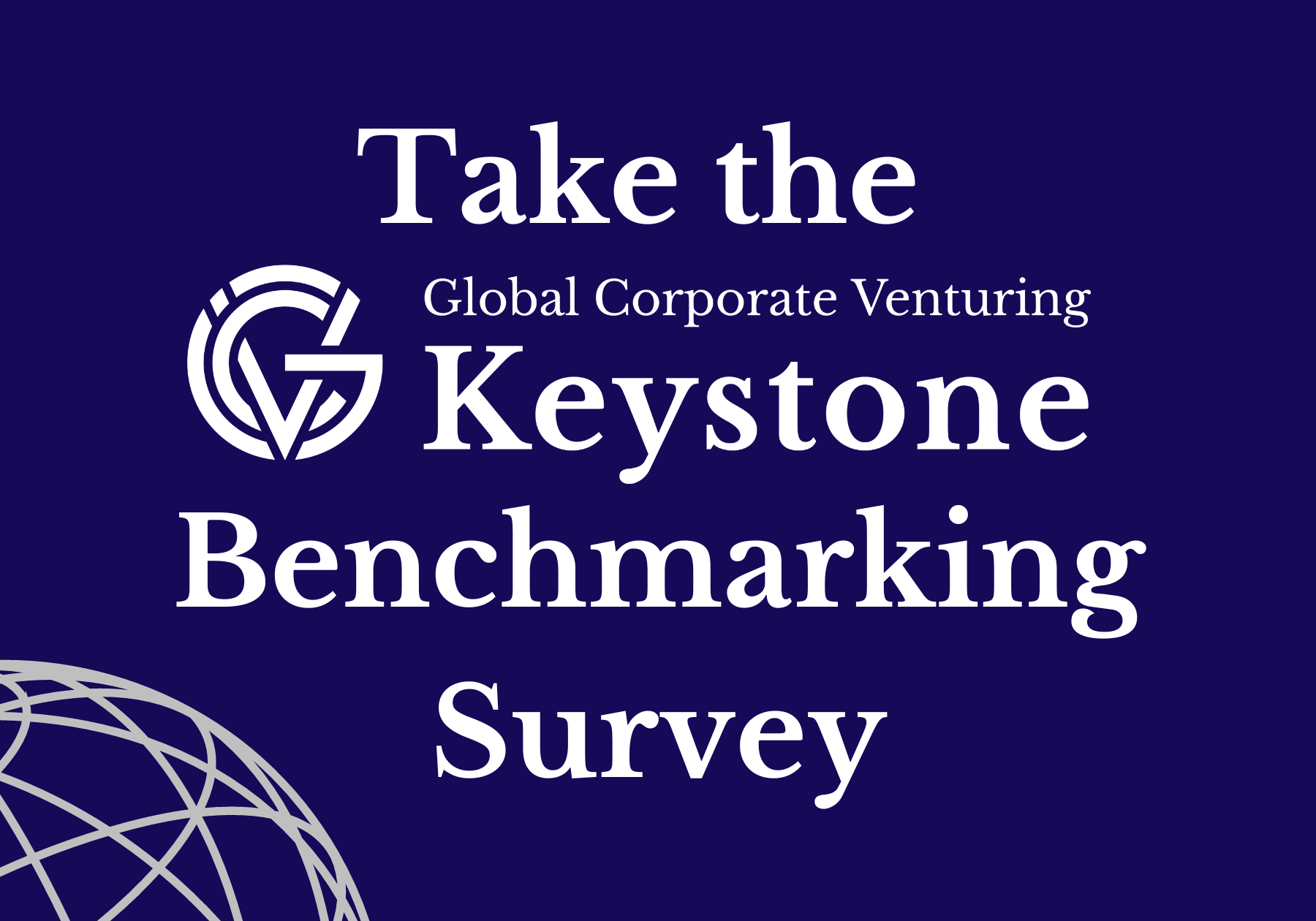Nichola Bates, head of Boeing's global accelerators and innovation programs, is taking radical steps to improve the gender balance of corporate venturing: she hires only women for her team. And it's not the only way she is shaking things up.

Nichola Bates sees her role within corporate venturing as a chance to be an agitator. It’s why she’s passionate about investing at an early stage, it’s why she is hellbent on kicking out inherited ways of working, and it’s why she only interviews women for her investment team at Boeing, where she is head of global accelerators and innovation programs at Boeing Ventures.
“The CVC industry – and the corporate world – is set up for women to fail. When I see a woman’s CV come through to me, I am automatically more impressed by the bones of it. Women have to overcome many more hurdles to get to a certain level in this line of work, so I know that a woman at CVC level has to be a cut above the rest,” says Bates, who is also managing partner at Aerospace Xelerated, Boeing’s 3-month accelerator for autonomy and AI startups advancing aerospace, which sits within Boeing Ventures.
“Women have to overcome many more hurdles to get to a certain level in this line of work, so I know that a woman at CVC level has to be a cut above the rest.”
At the same time as putting up barriers for women, Bates thinks big corporates also put up barriers for new technology.
Before her career at Boeing, Bates was part of the founding team at RepKnight, a Northern Ireland-based cybersecurity startup now operating as Skurio. The experience gave her a specific insight into how corporates worked (or didn’t work) with new tech. Bates saw smaller companies creating technology that was better, faster, and stronger. But big corporate customers were extremely resistant to even testing, let alone adopting it. This was one of the main things Bates wanted to change when she joined Boeing.
“I think one of the main benefits of being a large corporate is the ability to make space for the really exciting technology to come through,” she says.
Coming from that founder background also meant she was more interested (and more experienced) in earlier stage companies that were looking for smaller cheques.
“Being interested in earlier stage meant I was left to my own devices. People had this perception that I was a silly girl interested in small, frivolous deals.”
“Being interested in earlier stage actually meant when I started on the investment team I was left to my own devices. People had this perception that I was a silly girl interested in small, frivolous deals. The smaller cheques were seen as less important, less valuable,” she says.
But flying under the radar actually allowed Bates to make a significant impact. Under Bates’ watch, Boeing and Aerospace Xelerated invested in Sees.ai’s seed round, an UK based aerospace company ensuring the safety of unmanned aerial vehicles. Now, it has become the first UK company to secure routine permission to fly drones beyond visual line of sight in non segregated airspace. After being at Boeing for more than seven years, she now manages her own team made up of five women.
Running an all female team, in Bates’ opinion, removes the traditional gender expectations and insidious gender dynamics that can infiltrate the corporate world.
“I have always been an advocate of standing behind your team members, instead of in front of them. There is no hero complex on my teams at Boeing and Aerospace Xelerated. I encourage them to move fast and break things and I will throw them in at the deep end. When things go wrong, we will face it head on, together. There is accountability but there is also a strong level of support and a united front”.
The all-female dynamic allows the women on the team to speak up more, to get accustomed to having their opinion not only valued and listened to, but expected.

27 women to watch in CVC northern Europe
Over the past two years Global Corporate Venturing has been featuring the women working in corporate venturing, region by region. This final part highlights women working in the industry in northern Europe.
Team diversity
Although the team are all women, there is a lot of geographical and cultural diversity within it. Bates aims to respect that diversity.
“A lot of managing a diverse team successfully is about managing the people as individuals and figuring out the best way for them to work,” she says.
Different people approach problems in different ways. Managing a diverse team means giving people space and time when they need it and extra support when that is appropriate. One technique which works for her team at Boeing is looking at yearly goals on a professional level, but also on a personal level.
“We looked at our yearly goals professionally and personally. Doing this allows the team to bring their whole selves to work and puts respect and emphasis on the fact that people have lives and responsibilities outside of work”.
If someone is getting married that year, planning to move house, or has a child starting school, it allows Bates to manage their workload around those significant life events so the work doesn’t suffer and the employee doesn’t suffer from burnout. It fosters a mutual respect between company and employee.
Bates says there is also a notable difference in the generations – diversity in ages is another thing to consider. Older and younger people have different stresses and concerns — and Gen Z – the generation born between 1997 and 2012 – has a completely different attitude to work.
“I see CVC as not only the gateway to new technology, but also to new ways of thinking and new ways of working.”
“The thing about corporates is that they have a lot of inherited and old fashioned ways of working. Fill out this form, fill out that form. I see CVC as not only the gateway to new technology, but also to new ways of thinking and new ways of working. It’s our job to innovate and in turn drive innovation for the parent. That includes ways of working and processes too”.
Having been through a difficult few years with the struggles Covid brought to the aviation industry and some high profile issues with a new plane model, Boeing made the decision to spin its venture unit out in the summer of 2021, though they still have an investment team internally.

How do your unit’s diversity numbers compare with industry norms?
Take the GCV Keystone annual survey and you will receive our annual report, which includes diversity benchmarks for the sector. Click here to start.
Portfolio diversity
If your investment team is meeting diversity expectations, you’ve only solved half the problem, says Bates. Measuring the diversity of your portfolio is important, too.
When Bates joined Boeing, a lot of the existing investment team were based in Silicon Valley or the Bay Area. Having previously been a UK founder, it was frustrating for Bates to see tech from the US West Coast dominate investment when innovation was happening everywhere.
“One of my roles at Boeing is to be the window to the rest of world, to help us to really see what’s out there,” she says.
There’s one obvious advantage to geographical diversity within your portfolio — you’re more likely to invest in the best technology available and not just the best on the West Coast. But there are other advantages as well.
“The world as it is now is volatile and unpredictable. As businesses we need to diversify globally so we don’t become so dependent on specific regions or countries. So not only does it make logical sense to widen the net, it will also prove to be priceless in the long run,” says Bates.
And while some diversity metrics are extremely hard to measure on a portfolio level, getting more female founders into the pipeline is something not only measurable, but achievable.
One way that Bates has achieved a better pipeline of female founders is to say publicly that her team will guarantee a meeting with any company that has a female founder.
“Doing that ensures that female founders know that they aren’t wasting their time with us – they will be taken seriously and they will be listened to,” she says. But, Bates adds, the female founder must have a real voice at the startup. There is no room for companies that enlist a female founder only for her to be sidelined.
Investing in people
Diversity of portfolio also means looking at founders on an individual level, as well as their companies. Some founders aren’t good at pitching and public speaking, or naturals at selling, but this wouldn’t stop the team at Boeing investing. A bad pitch doesn’t necessarily mean the idea is bad. Bates says sometimes Boeing even bring in acting coaches to assist founders who are having a hard time with their pitch.
Corporate investment shouldn’t be a vanity project, says Bates. It should be about where the parent company can make the most impact and bring tangible, valuable help and assistance.
There is also the difficult (and common) issue of discovering that the founder might not be the best person to hold the CEO role. That can be a difficult conversation to have, says Bates.
“It’s a conversation that has to be navigated extremely carefully. Founders are extremely passionate people and being told that you might not be the best person to lead is a difficult thing to hear. But that advice and guidance is part of what we offer at Aerospace Xelerated when we invest,” she says.
“Part of coaching founding teams can be helping them to realise that they can define their own job roles.”
“Part of coaching founding teams can be helping them to realise that they can define their own job roles. I always say: make a list of all the things you love doing, and all the things you don’t like doing. The list of things you don’t like can be given to someone else,” says Bates.
If someone clings too hard to the ‘CEO’ ideal, it can mean the death of the company.
But the people behind the idea are almost always the key to success and it’s something Boeing take seriously.
“CVCs have a unique and privileged position where we can actually nurture a company and make a difference. I just wish more of us could see it that way”.
“Because Boeing, via Aerospace Xelerated, often invest at a very early stage, we are commonly investing in first-time founders. We know statistically a first-time founder is less likely to build a successful company first time round. But our ethos is that when they do make something that has legs – Boeing will be the first place they come for investment,” she says.
That long term outlook and the ability to invest in exceptional people is another reason Bates believes CVC has a clear advantage over traditional VC.
“We are lucky to have permanent jobs – we aren’t going to get fired if an investment company implodes – but similarly we aren’t going to get promoted if we invest in a unicorn. CVCs have a unique and privileged position where we can actually nurture a company and make a difference,” she says. “I just wish more of us could see it that way”.









